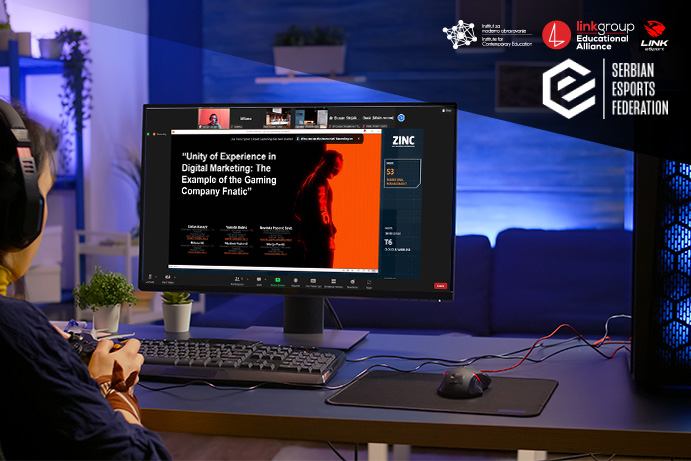 Researchers from LINK edu Alliance Institute for Contemporary Education participate in prestigious IEEE conference ZINC 2022
Researchers from LINK edu Alliance Institute for Contemporary Education participate in prestigious IEEE conference ZINC 2022
On Thursday, May 26, on the second day of the prestigious IEEE conference ZINC 2022, the LINK edu Alliance presented the works of researchers and teachers from the Institute for Contemporary Education.
ZINC 2022 included symposiums, panels, seminars, discussions and conferences on zooming innovation in consumer technologies. ZINC 2022 is funded by the IEEE Serbia and Montenegro section – Chapter for Consumer Technologies, as well as the University of Novi Sad, Faculty of Technical Sciences, Department of Software Engineering and Information Technology, as well as the Institute for Computer-based Systems RT–RK.
Two scientific papers by LEA researchers were presented within the Marketing, management, e-commerce session, chaired by Nir Kshetri, (University of North Carolina – Greensboro & Kobe University, USA).
The first paper entitled The Impact of the Tool Sken.io on Consumer Behavior in the Purchase Process, investigates whether the consumer’s level of education influences the connection established between the company and its customers during purchase. This is shown in the example of the sken.io tool, which changes consumer behavior during the search for offers on the market. By using this tool, consumers can easily detect corporate manipulations and track changes only on selected web pages. This means that consumers do not have to see the whole website, and the company loses the opportunity to compel them into impulsive purchases. The authors of this paper are: Milica Jevremović, Professor at ITS, Dušan Stojaković and Zorica Jelić, professors at FCA, and Vladimir Cerić and Nada Staletić from the Academy of Technical and Art Applied Studies.
The second paper, entitled Unity of Experience in Digital Marketing: The Example of the Gaming Company Fnatic, presents the leading esports company Fnatic as a case study. It is part of the project aimed at establishing the first esports association in secondary schools and universities in Serbia, which is initiated by our Alliance. The paper explains how quickly online games (i.e. competitive video games) and esports have changed the field of digital marketing. The authors of this paper are: Stefan Kanazir, ITS alumnus, Nevenka Popović Sević, Professor at ITS, Vladimir Vuković, Professor at FCA, Valentin Kuleto, President of the Institute for Contemporary Education, Milena Ilić, Director of the Center for Scientific Research and Publishing of the Institute for Contemporary Education, and Marija Panić, teacher at International School. Given that the gaming industry is yet to develop in the years to come, the survival of brands in the field of digital marketing will depend on their future investments in this market, which is continuously growing and evolving. Given that sports competitions were postponed or paused during the COVID-19 pandemic, esports exploded to fill the gaps in demand for various fans, thus enabling Fnatic and similar companies to further expand their offer of e-services. However, although the popularity of esports have grown in recent years, online competitions and championships are yet to reach the level of popularity enjoyed by traditional sports.
Scientific research that resulted in the promotion of the two scientific papers mentioned above was conducted within the Center for Scientific Research and Publishing of the LINK edu Alliance’s Institute for Contemporary Education.


 Srpski
Srpski




